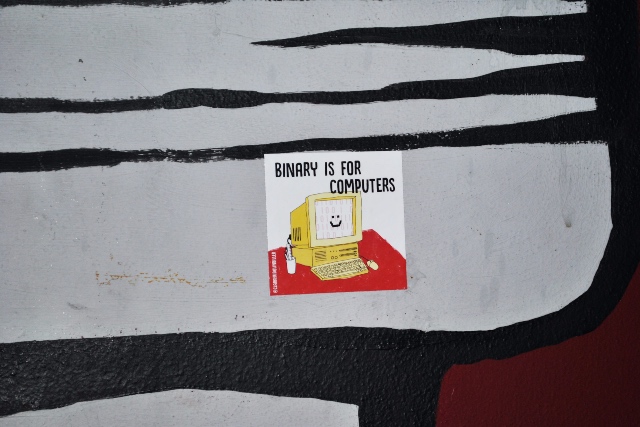
Despite the progress in LGBTQ+ representation in recent years, we’re at a point where there’s still a considerable lack of proper trans and gender diverse representation. For one, media representation of genderqueer/ gender diverse people are still mostly limited to interpretations by cis people.
“It’s not that there’s a lack of materials on gender, there’s actually quite a lot. There are whole courses that you can take on Philippine queer studies, whether it be in literature or film or sociology. There are so many books that talk about queerness in the Philippines as well. Trans and gender diverse people are also quite prominent in our media—in films and TV—so it’s not like there is no representation. [But] many of these representations in popular culture are not coming from the perspective of trans people–the characters you see in film and TV are not written by trans people,” Mikee Inton-Campbell, activist and former gender studies professor at De La Salle University, writes to me in an email.
This is why she and fellow trans women activists and scholars Dr. Brenda Alegre from the University of Hong Kong and Dr. Jaya Jacobo of Ateneo de Manila University have teamed up to launch a new anthology of writings spotlighting the voices of “trans pinoys and trans pinays” called “Trans Pilipinas: An Anthology by Trans and Gender Diverse Filipinos.”
“We’d really like to fill that gap and provide a platform for trans and gender diverse Filipinos to speak about their experiences and make our voices collectively heard,” she writes.
According to Dr. Inton-Campbell, the goal is to promote self-representation and to show just how diverse trans experience is in the Philippines. “I’m passionate about this because I want transpinoys and transpinays and gender non-conforming/gender non-binary people– particularly the younger generation–to know that they are not alone and that there is a community out there that they can come to and speak with and stand with in solidarity,” she writes.
I met Dr. Inton-Campbell in college, where she was my professor. Her film class, especially when it tackled queer cinema, was instrumental in my reforming my ideas about gender and sexuality. It was the first time I got to really engage in discourse about feminism and queer text, coming from a conservative Catholic household and high school.
I’ve since learned that it’s my responsibility as a cis woman to educate myself about these things because these will allow me to treat those around me with respect and exercise compassion towards them. These also allow me to be a better person by learning to be more sensitive and empathetic—eventually educating those around me as well.
It’s still discriminatory to *constantly* ask trans people what it feels like to be them. It’s as if you’re forcing them to perform for you, pushing them to feel even more uncomfortable.Of course, I don’t ever want to talk over their experience. Cis and hetero people also need to understand that they should never invade genderqueer spaces.
“I’m really tired of getting requests from cis/het students asking to interview trans people for their research and studies. They’re always so curious about the ‘mental stresses’ that we undergo, or our experiences of discrimination and how we cope with these. But I don’t feel like these studies actually do anything to help improve trans peoples’ lives–so I’m always wary about allowing these students access to my sisters and brothers in the community. So, on a personal level, what I want for this book is to be like: ‘So you want to know what it’s like to be trans in the Philippines? Here–read this!’” she writes about her experience with her cis students.
If you’re interested in submitting works or if you have trans friends who might be interested to submit, the Trans Pilipinas editorial board is open to essays, research, personal stories, poems, artwork and fiction that talk about trans and gender diversity in the Philippine context. “It’s a book about trans people, written by trans people, for trans people,” Dr. Inton-Campbell writes. They’d like to hear from as many trans people about their diverse experience which includes their transition, love, family, sexuality, work (which includes sex work) and other topic.
“We don’t want to limit the submissions–as long as the work is centered on transness, we’re good with it. Ideally, the authors are also trans or gender diverse, but we’re also open to accepting works from non-trans authors. We’re also happy to take in stories and works about being intersex in the Philippines,” she explains. “The main message is that the trans community in the Philippines is diverse, and that it’s in this diversity that our lives intersect and connect with each other.”
https://www.facebook.com/photo.php?fbid=10157365394267857&set=a.10150764177257857&type=3&theater
Photo courtesy of Unsplash
Follow Preen on Facebook, Instagram, Twitter, YouTube, and Viber
Related Stories:
Make no mistake—the catfishing thread is about transphobia and sexual assault
Here’s what we know about the transphobic catfishing allegations so far
Fighting for women and trans women’s rights with #EachforEqual
Do you want to be a better trans ally? Read these tips

